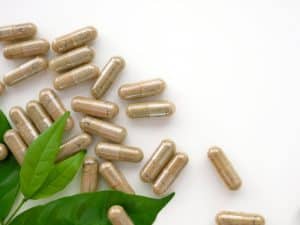
We’ll Show You: Max International’s Commitment to Proven Wellness
We’ll Show You: Beyond Rhetoric to Real Evidence In the crowded health and wellness landscape,

It seems now more than ever being healthy means being mindful of all the healths we have (like physical, mental, emotional, etc.) and optimizing (as broadly, effectively, and efficiently as possible) the body’s major systems, vital organs, their functions, and more to create harmony and balance across all our interactive healths. Maybe you’ve thought about it, maybe you haven’t, but when it comes to overall health and wellness, gut health is a big one.
Gut Bacteria – A Good Biome
While our whole body supports about 10,000 microorganisms to help our different health, our digestive system contains a complex relationship of 300 to 500 different species of bacteria. This is called the “gut microbiome” and refers specifically to the microorganisms living in the intestines. And while we tend to think that microorganisms can be harmful to our body, many provide benefits, and are even essential, for good health. Gut health influences emotional health, spiritual health, mental health as well as physical health. In fact, chronic stress and gut health are linked and have a significant effect on each other.
Additionally, 70% of immune system health is connected to our gut health. Attention to digestion and the system it belongs to is paramount to better, broader health and wellness. The body’s immune system has a symbiotic relationship with how your gut operates. Studies within the past few years have discovered how the gut biome plays an essential role in immune cell recruitment and differentiation and has an impact on how the body reacts to overall immunity and immunologic diseases.1
___________________________
1 https://www.ncbi.nlm.nih.gov/pmc/articles/PMC5385025/
So you want to have a healthy gut biome – but how can you help it? Well, there are several helpful tips for maintaining good gut health – some of which are exactly like some of our previous advice for good, proactive health:
Unsurprisingly, your regular diet plays a HUGE role in setting the condition of your biome.
Gut microbes get most of their nutrients from our diet and help us digest much of the food we ingest. Therefore, it should come as no surprise that diet has a huge impact on what fuels our biome.
Modern diets that prioritize high levels of animal protein, saturated fats, simple sugars and salt, can have detrimental effects on your biome. So what should you prioritize? Try to make sure you’re getting some of the following:
After all, your gut takes in food, digests the food you eat, absorbs nutrients, then uses the nutrients for energy. Nutritional replenishment is a function of your gut. In addition to consuming the vitamins, minerals, and other nutrients your body needs, incorporating the following foods helps supports your good biome:
Digestive health and the rest of our healths are intertwined and related. Each affects the others. The ways in which our different healths are best maintained are often similar. (Nutrients and nutrition are almost always included in any discussions about health and wellness). Give your gut and good biome what they need.
Stick around and discover why the Live Max blog is important for you!
Max prioritizes your health and wellness.
Live to the Max!
About Live Max
Backed by decades of research, patented and recommended by many healthcare professionals, our products help you to live to the MAX.
MAX products work. After years of research and strict science, Max chemists engineered the unique and patented RiboCeine™ technology only Max has. RiboCeine™ promotes the natural production of Glutathione, the body’s master antioxidant and primary protector of your cells.
You might also enjoy

We’ll Show You: Beyond Rhetoric to Real Evidence In the crowded health and wellness landscape,

Only Max Delivers: Validating Claims with Unmatched Transparency Max International isn’t just making claims—we’re backing

In the sprawling universe of health supplements, buzzwords and bold claims often overshadow the truth.

MaxATP is not just another energy drink. It’s a scientifically validated, premium quality energy drink

When it comes to supplements, better absorption is the game-changer. Max International’s patented RiboCeine™ technology

Welcome to Max. We know what searching for the best supplements and nutritional replenishment feels

Max’s patented RiboCeine™ technology promotes the natural production of Glutathione, the body’s master antioxidant. Discover what enhanced Glutathione can do for you.
† * These statements have not been evaluated by the Food and Drug Administration. This product is not intended to diagnose, treat, cure or prevent any disease.
The truth is, we can’t just take Glutathione over the counter and effectively absorb it. Most supplements lack what is known as “bioavailability”, which is the ability to be absorbed by the body on a cellular level. The active ingredients in most supplements are expelled from the body without any benefit to you, which is a waste of time and money.

Max’s proprietary RiboCeine technology was designed specifically to help our body’s produce Glutathione naturally within our cells and avoid the challenge of low bioavailability.
When effectively absorbed, RiboCeine helps to combat toxins, free radicals and oxidative stress. Oxidative stress damages cells, compromising our overall health.*
With the health obstacles we all face, now more than ever is the time we should be looking to maximize our health.
RiboCeine is easily absorbed and enables the cells to create glutathione naturally to help strengthen a healthy immune system.
It is a unique molecule that combines ribose and cysteine, nutrients that occur naturally in our bodies. The cells then use the ribose and cysteine to naturally produce Glutathione as well as ATP – our cells’ natural fuel and source of energy.
* These statements have not been evaluated by the Food and Drug Administration. This product is not intended to diagnose, treat, cure or prevent any disease.